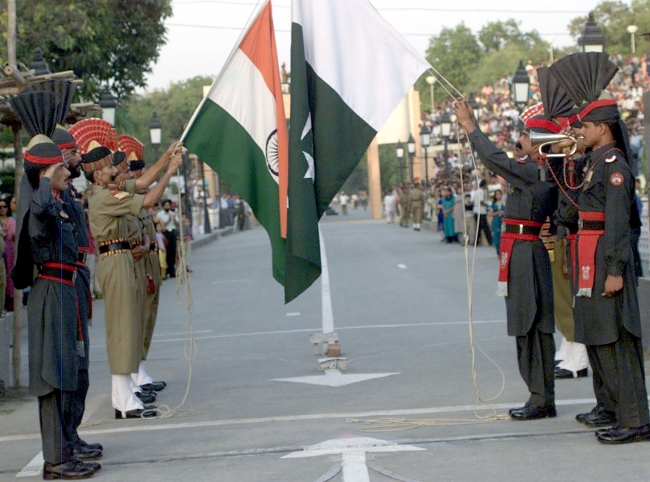
Seven decades after independence, India-Pakistan relations are defined as much by the advent of the second nuclear age as they are by the painful history surrounding Partition. A distinctive feature of this equation is the propensity in both countries to relentlessly pursue an arms race that is harmful —not only in terms of its economic costs but also its effect on regional stability. In such a tense climate, the dispute over Kashmir is particularly significant. If recent events are any evidence, unless the Kashmir dispute is resolved, the Indo-Pakistan peace process will remain extremely fragile and ready to unravel at the slightest provocation.
Pakistan’s Independence Day celebrations were marred by what the Pakistani military and Pakistani media referred to as “unprovoked firing” on the Line of Control (LoC), adding that Pakistani troops had responded “befittingly” to the Indian assault. The incident occurred near Rawalakot, the de facto border dividing Kashmir between India and Pakistan. According to the Indian military and media’s version of events, the Pakistani military had resorted to unprovoked violations at the LoC, and Indian forces responded appropriately.
The Kashmir dispute is particularly complicated because India and Pakistan cannot even agree on the nature of the issue. India refers to Kashmir as a terrorism issue while Pakistan regards it as a matter of self-determination for the Kashmiri people. For example, India blames Pakistan for aiding terrorist organizations and the recent unrest in Kashmir. Denying Indian charges, Islamabad asserts that it only provides “full diplomatic, moral and political support” to Kashmiris, who are rightfully protesting oppression. For its part, Pakistan argues that Burhan Wani’s murder was extrajudicial, criticizing India for human rights violations in Indian-administered Kashmir. In turn, Indian Prime Minister Narendra Modi retorted that Pakistan remained answerable for its own human rights violations in Balochistan and the Pakistani side of Kashmir.
These differences between India and Pakistan in even framing the Kashmir issue have had negative implications for the peace process. For example, Pakistan’s Foreign Affairs Advisor Sartaj Aziz recently announced Islamabad’s intention to invite New Delhi to discuss the ongoing violence in Indian-administered Kashmir. Instead, India’s External Affairs Ministry spokesperson Vikas Swarup, in an apparent denial of the proposal, simply noted that “India would welcome a dialogue on contemporary and relevant issues in India-Pakistan relations,” but defined those relevant issues as cross-border terrorism and the 2008 and Pathankot attack investigations.
The vicious cycle of finger-pointing will continue until both sides can acknowledge the Kashmir dispute in a similar context. Ironically, India considers Kashmir an internal matter and refuses to even acknowledge it as a bilateral problem. This is despite the fact that India took the issue of Kashmir to the United Nations (UN) in 1948 under chapter VI of the UN Charter titled “Pacific Settlement of Disputes,” rather than under Chapter VII titled “Action with respect to Threats to the Peace, Breaches of the Peace, and Acts of Aggression,” thus publicly acknowledging that the issue of Kashmir was, in fact, a bilateral issue. Addressing the problem of terrorism and Kashmir simultaneously would deprive terrorists operating in India and Pakistan of both space and instruments such as propaganda that have become available to them as a result of this rivalry.
The current state of India-Pakistan relations has all the ingredients that spell disaster: a climate of mistrust, an arms race, saber-rattling, firing across the LoC, and the use of propaganda and rhetoric. The potential for conflict is greater today than it ever was in the past, and politicizing the issue will only serve to complicate matters further. Moreover, the process of othering the adversary inevitably leads to a reduction in policy options for both India and Pakistan. In such an environment, communication channels between India and Pakistan need to remain open as they can help reduce rivalry between the governments in peacetime, and serve as last resort in a time of crisis. Communication is the only method for promoting lasting peace and prosperity.
***
Image 1: Visual News, Getty
Image 2: Tauseef Mustafa-AFP, Getty



